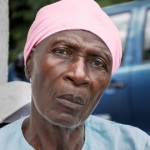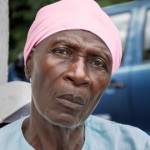No Haitian Army Anytime Soon. How About a Militia?
By Dady Chery
Haiti Chery
Imagine this. A Haitian delegation including Michel Martelly travels to Cuba, hoping for medical and agricultural aid. A day later, when they return to Haiti, Martelly speaks glowingly about Cuba’s gifts of
- Seven expanded and improved community hospitals
- Five expanded and improved health centers
- Doctors and medical training
- Teachers for a literacy program
- Veterinarians
- Programs for road construction, transportation, and waste disposal jointly with Venezuela and Brazil
and then announces that, instead of putting the Haitian state’s resources into equally worthwhile projects, such as construction of housing for the poor or prevention of cholera, he will spend $95 million on a vanity army.
Anyone with sense could have predicted that this would not happen, despite the recent media blitz to promote the notion that Haitians want an army, and Martelly enjoys broad popular support because of his campaign promise of such an army.
In fact, Haitians were delighted to get rid of their army, which was burdensome on the state and repressive. According to President Jean-Bertrand Aristide:
“Once we had an army of 7,000 soldiers controlling 40 percent of the national budget, but moving from coup d’état to coup d’état. I said no. Let’s disband the army, let’s have a police force to protect the rights of every citizen, let’s have dialogue to address our differences. There is no democracy without opposition.”
As concerns Martelly’s mandate. He is the outcome of an election that was fixed by the United States, Canada, France, and the U.N. This election excluded the most popular political party Lavalas and consequently was boycotted by about 80 percent of the people. Martelly’s supporters are the roughly 14 percent of the electorate who favored him over another unpalatable Duvalierist candidate.
The campaign for a Haitian army immediately preceded the United Nations Security Council’s vote on MINUSTAH’s mandate in mid-October. It failed in its first objective, which was to quiet those agitating for MINUSTAH’s withdrawal with the threat of its replacement by a paramalitary group. The campaign also failed in its second aim to bolster Martelly’s image even while he acquiesced to the retention of a diseased and depraved occupation army.
Since the proposed armed force was a white-paper fantasy, Martelly and company made it good, and conveniently slipped a copy to the Associated Press (AP). According to this proposal, an undefined group of countries called the “friends of Haiti” would finance a force of 3,500 soldiers, with the first 500 being recruited in time to inaugurate the new Armed Forces of Haiti (FAdH) on November 18th: the anniversary of the Bataille de Vertières.
But instead of unveiling his new army, on November 18th Martelly announced that he would
“delay the mobilization of the Haitian army and establish a commission to study the idea…. [He] asked the ‘friends of Haiti’ nations that have given support to the Haitian government to help reinforce the Haitian National Police… and said he would name a commission in the coming days that will study the issue and report in 40 days.”
In these days of heavy police militarization, this reinforcement of the Haitian national police might well be a plan to set up the country with an occupation police indistinguishable from an occupation army. This is especially suspicious in view of the fact that Haiti has one of the lowest crime rates in the Caribbean.
Hopefully Martelly’s commission will take its time to draft its report.
Here is a suggestion for the commission.
As Haitians, we are well aware that, throughout our country’s history, the main threats to our sovereignty have been the invasions by large western forces and repression by their megalomaniac client dictators, the most recent invasion being the U.S.-France-Canada sponsored coup that overthrew President Jean-Bertrand Aristide and introduced the U.N. occupation. Such threats are best countered by a militia system like the one that existed during Toussaint’s rule in 1801-1803, or the one that kept Hitler’s army from invading Switzerland during World War II.
A militia system involves arming all citizens and is, by nature, decentralized and locally controlled. As such, it is incapable of offense but presents a formidable defense. Stephen Halbrook writes:
“The reason that Switzerland was too difficult to invade—in contrast to all the other nations which Hitler conquered in a matter of weeks — was the Swiss militia system. Unlike all the other nations of Europe, which relied on a standing army, Switzerland was (and still is) defended by a universal militia.
“Every man was trained in war, had his rifle at home, was encouraged to practice frequently, and could be mobilized almost instantly. The Swiss militiaman was under orders to fight to the last bullet, and after that, with his bayonet, and after that, with his bare hands. Rather than having to defeat an army, Hitler would have had to defeat a whole people. ”
“The Swiss governmental system was decentralized, with the separate 26 cantons, not the federal government, having the authority. The federal government did notify the Swiss people that in case of a German invasion, any claim that there had been a Swiss surrender should be disregarded as Nazi propaganda. And because the military power was in the hands of every Swiss man, the federal government would have been unable to surrender had it ever wanted to.”
Haiti’s 1801 Constitution, written under Toussaint L’Ouverture’s rule, required that all men serve in the state militia. And so it was a militia army that served Haiti so admirably at the Bataille de Vertières. Such an army would work well again for Haiti, but it is not the sort of project that could ever be financed by friends. If Haiti cannot find the means to support its own army, then Haiti should not have one.
Source: Haiti Chery








Comments
No Haitian Army Anytime Soon. How About a Militia? — No Comments